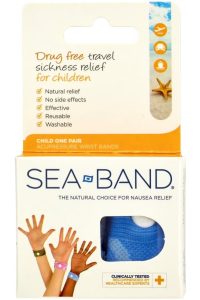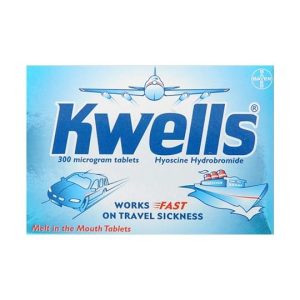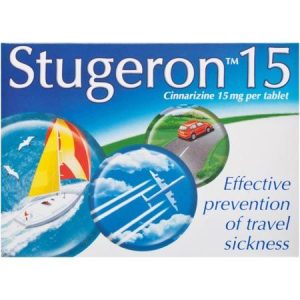Chemist.net Cookie Policy : We use cookies to enhance your user experience. To find out more please view our cookie policy
Preventing and Treating Travel Sickness: Tips for a Smooth Journey

Travelling to new and exciting destinations can be a thrilling experience, but for some, the joy of exploring comes with the unwanted companion of travel sickness. Whether you're traveling by car, plane, boat, or train, travel sickness can turn a dream trip into an uncomfortable ordeal. However, fear not! In this blog, we'll delve into what travel sickness is, its causes, and most importantly, how to prevent and treat it effectively, so you can enjoy your adventures to the fullest.
Understanding Travel Sickness
Travel sickness, also known as motion sickness, is a condition that occurs when the brain receives conflicting signals from the eyes, inner ears (vestibular system), and other proprioceptive receptors. These mixed signals can happen during motion, such as when you're traveling, leading to symptoms like dizziness, nausea, vomiting, sweating, and fatigue. It can affect people of all ages and can be triggered by various forms of transportation, amusement park rides, and even virtual reality experiences.
Preventing Travel Sickness
- Choose Your Seat Wisely: If you're travelling by car, try to opt for the front seat, where you can see the road ahead. If you're on a plane, pick a seat over the wings for a more stable ride. On ships, try to secure a cabin near the waterline, as it experiences less motion.
- Look Outside: Focusing your gaze on a fixed point outside the vehicle can help your brain synchronize the sensory information it receives. Avoid reading or using screens during travel, as this can exacerbate travel sickness.
- Fresh Air and Ventilation: Ensure that there's adequate ventilation, as fresh air can alleviate nausea. If possible, crack open a window or adjust the air vents to maintain a steady flow of fresh air.
- Stay Hydrated: Dehydration can worsen travel sickness symptoms, so drink plenty of water before and during your journey. However, avoid excessive consumption of alcohol or heavy meals, as they can trigger or worsen nausea.
- Take Breaks: If you're on a long journey, schedule regular breaks where possible to get some fresh air, stretch your legs, and reset your senses.
- Acupressure: Some travellers find relief using acupressure wristbands that apply pressure to specific points on the wrists and may help reduce nausea.
- Ginger: Ginger has natural anti-nausea properties. Consider drinking ginger tea or taking ginger supplements before and during your journey.
Treating Travel Sickness
- Relaxation Techniques: Practice deep breathing, meditation, or other relaxation techniques to help reduce anxiety and stress, which can contribute to travel sickness.
- Distraction: Engage in activities that can distract your mind from the discomfort, such as listening to music, audiobooks, or engaging in light conversation.
- Over-the-Counter Medications: Over-the-counter medications such as Hyoscine Hydrobromide (Kwells), Promethazine Teoclate (Avomine) or Cinnarizine (Stugeron) can be effective in preventing and alleviating travel sickness symptoms. Always follow the recommended dosage and consult your pharmacist before using any medication.
Conclusion: Travel sickness should never hold you back from exploring the world and creating beautiful memories. By following the prevention tips and utilizing appropriate treatments, you can manage travel sickness effectively and enjoy your journeys to the fullest. Bon voyage!


